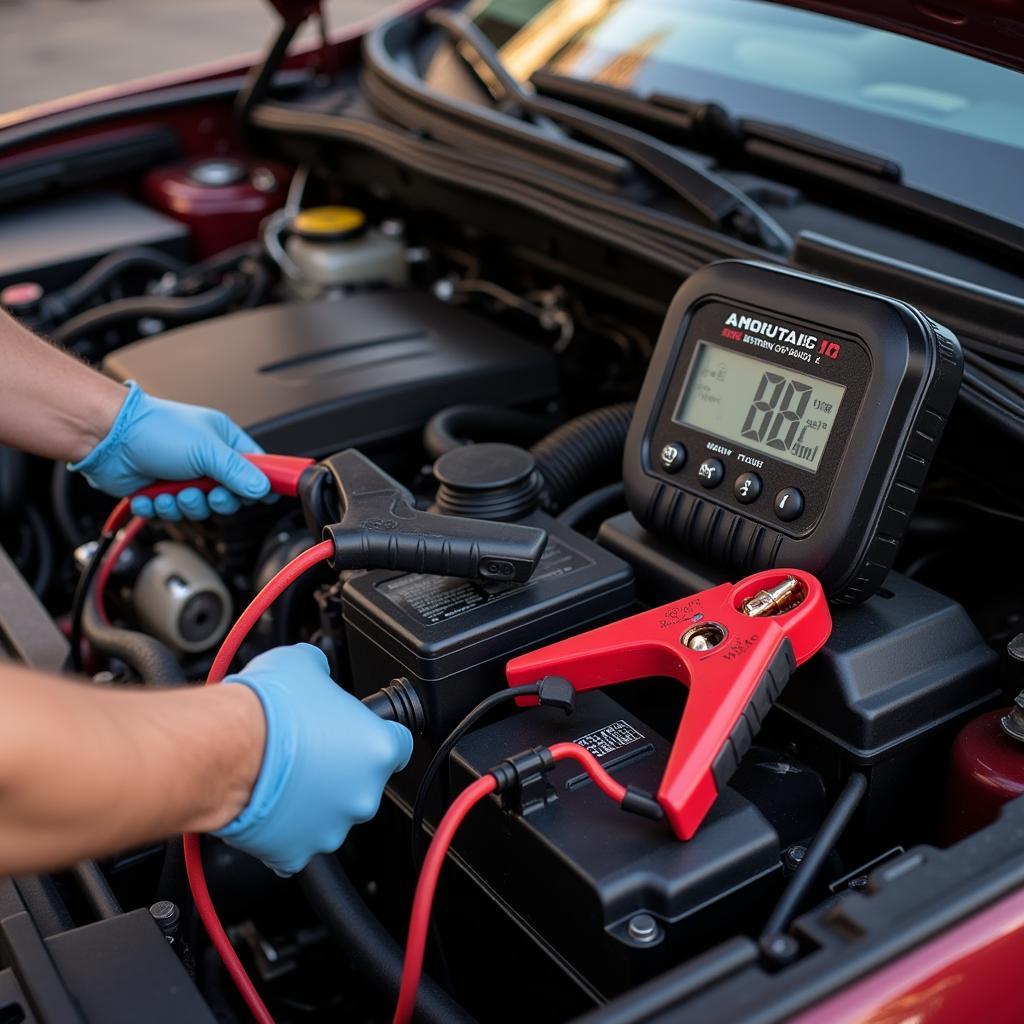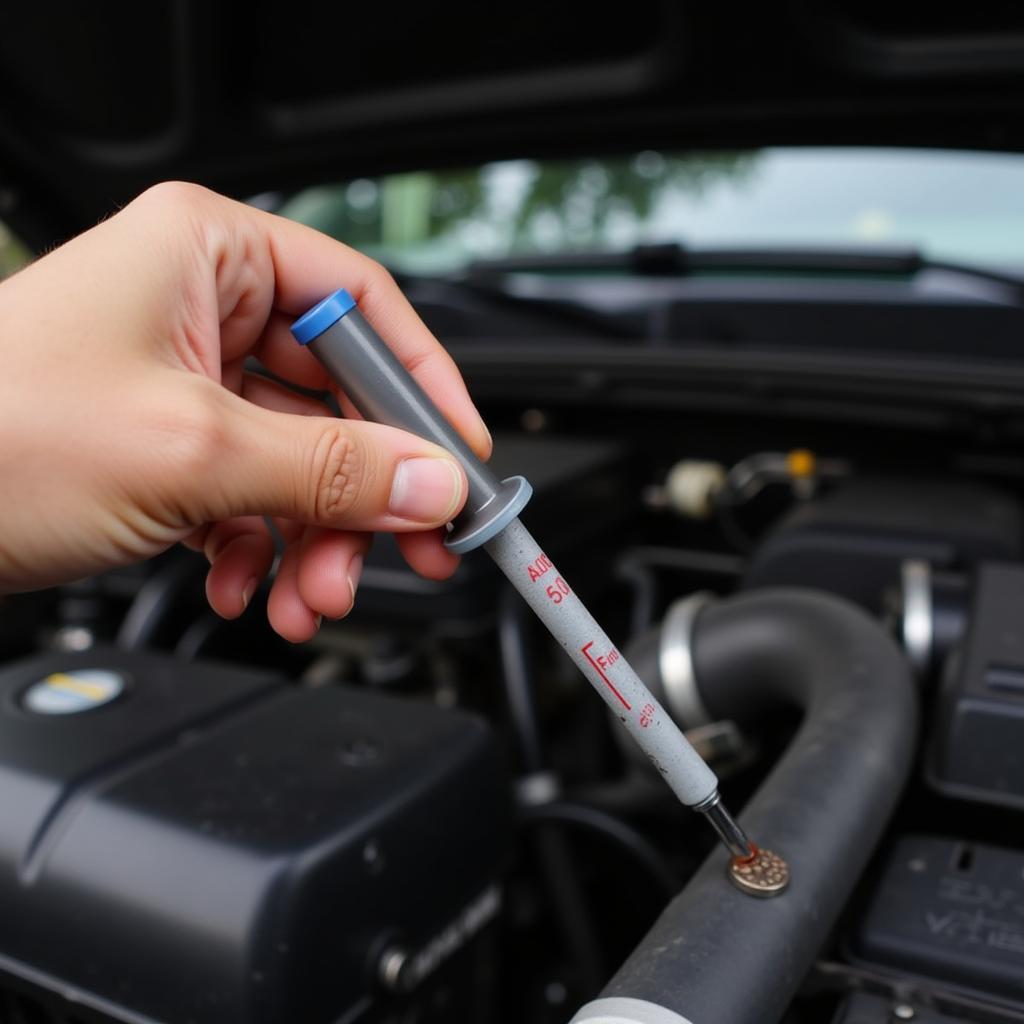Experiencing the frustration of a broken car AC, especially during scorching summer days, is something most drivers dread. An overcharged AC system is one potential culprit behind this uncomfortable situation. While it might sound intimidating, understanding the signs of an overcharged AC and knowing how to address the problem can save you from unnecessary discomfort and expensive repairs.
One common indicator of an overcharged car AC is when the air coming from the vents isn’t as cold as it used to be. You might also notice the AC compressor cycling on and off more frequently than usual. This erratic behavior can strain the system and potentially lead to more significant issues if left unaddressed.
Understanding the Risks of an Overcharged Car AC System
Overcharging your car’s AC system isn’t just about compromised comfort; it can lead to severe damage if ignored. Excess refrigerant pressure within the system can strain the compressor, leading to premature wear and tear. In extreme cases, this overpressure can even cause the compressor to seize entirely, requiring a costly replacement.
Furthermore, an overcharged system can disrupt the delicate balance of refrigerant and oil, hindering proper lubrication. This can lead to increased friction and heat, further exacerbating wear and tear on crucial components. Recognizing the signs early on and seeking professional help is essential in preventing these costly consequences.
Common Causes of an Overcharged Car AC
Before jumping to solutions, it’s crucial to pinpoint the root cause of the overcharged system. Several factors can lead to this issue, and understanding them can prevent future recurrences.
- Improper AC Recharge: One of the most common culprits is an incorrectly performed AC recharge. If you’ve recently had your AC recharged, there’s a chance it might have been overfilled with refrigerant, leading to the current issue.
- Faulty AC Components: Malfunctioning components within the AC system, such as a faulty expansion valve or a blocked orifice tube, can disrupt the refrigerant flow and lead to an overcharge.
- DIY Recharge Mistakes: While DIY AC recharge kits might seem appealing, they often lead to inaccurate refrigerant levels, increasing the risk of overcharging.
Troubleshooting an Overcharged Car AC: A Step-by-Step Guide
While it’s recommended to consult a qualified mechanic for AC-related problems, here are some steps you can take to diagnose if your car AC is indeed overcharged:
- Check the Pressure: If you’re familiar with handling AC systems and have the necessary equipment, you can check the pressure using an AC pressure gauge. However, it’s crucial to exercise caution and follow safety guidelines as refrigerant can be hazardous.
- Inspect for Leaks: Carefully examine the AC lines, connections, and components for any signs of refrigerant leaks. Leaks can manifest as oily residue or frost buildup around the affected areas.
- Listen for Unusual Noises: Pay close attention to any strange noises emanating from the AC system, such as hissing or bubbling sounds. These could indicate leaks or other issues within the system.
Professional Overcharged AC Car Fix: What to Expect
If you suspect your car AC is overcharged, seeking professional help is always recommended. A qualified mechanic possesses the expertise and tools to diagnose and rectify the issue safely and efficiently. Here’s what a typical Overcharged Ac Car Fix entails:
- System Inspection: The mechanic will thoroughly inspect the entire AC system, checking for leaks, pressure levels, and the functionality of all components.
- Refrigerant Recovery: Using specialized equipment, the mechanic will safely recover the excess refrigerant from the system, bringing it down to the manufacturer-recommended level.
- Leak Detection and Repair: If leaks are detected during the inspection, the mechanic will pinpoint their location and perform the necessary repairs.
- System Recharge: After addressing leaks and ensuring all components function correctly, the mechanic will recharge the AC system with the appropriate type and amount of refrigerant.
- Performance Test: Once the system is recharged, the mechanic will run a performance test to ensure it’s cooling efficiently and all components are working harmoniously.
Preventing Future Overcharging: Tips for Car Owners
Preventing an overcharged AC system is always better than dealing with the consequences. Here are some proactive steps you can take to avoid this issue:
- Regular AC Service: Schedule regular AC checkups with a qualified mechanic, especially before the start of the summer season.
- Address Leaks Promptly: If you suspect a refrigerant leak, address it immediately by having a professional inspect and repair the system.
- Avoid DIY Recharges: While tempting, it’s best to leave AC recharges to the professionals to ensure accurate refrigerant levels.
FAQs: Overcharged AC Car Fix
Q: How much does it cost to fix an overcharged car AC?
A: The cost can vary depending on the severity of the overcharge, the need for component replacement, and labor costs in your area. It’s best to contact a few local mechanics to get accurate quotes. How much is it to get AC in car fixed?
Q: Can I drive my car with an overcharged AC?
A: While you might be tempted to drive with an overcharged AC, it’s highly discouraged. Driving with an overcharged system can lead to further damage and more costly repairs down the line. Need AC fixed in car?
Q: Can I fix an overcharged AC myself?
A: While some minor AC maintenance tasks can be done at home, fixing an overcharged system requires specialized equipment and expertise. It’s strongly recommended to seek professional help for this issue. How to fix my car AC?
Q: How often should I recharge my car’s AC?
A: A properly functioning car AC system shouldn’t require frequent recharges. However, it’s a good practice to have it inspected and serviced every 2-3 years or as recommended by your car manufacturer.
Conclusion
An overcharged AC is a common yet potentially damaging issue that requires immediate attention. Recognizing the signs, understanding the risks, and seeking timely professional help are crucial in resolving this problem and ensuring your car’s AC keeps you cool and comfortable throughout the year. Remember, regular maintenance and prompt repairs are key to prolonging the lifespan of your car’s AC system and avoiding costly breakdowns.
If you are experiencing any issues with your car’s AC system, it is essential to seek professional help. Our team at AutoTipPro can diagnose and fix the problem quickly and efficiently. Contact us at +1 (641) 206-8880 or visit our office at 500 N St Mary’s St, San Antonio, TX 78205, United States. We are here to help!







Leave a Reply